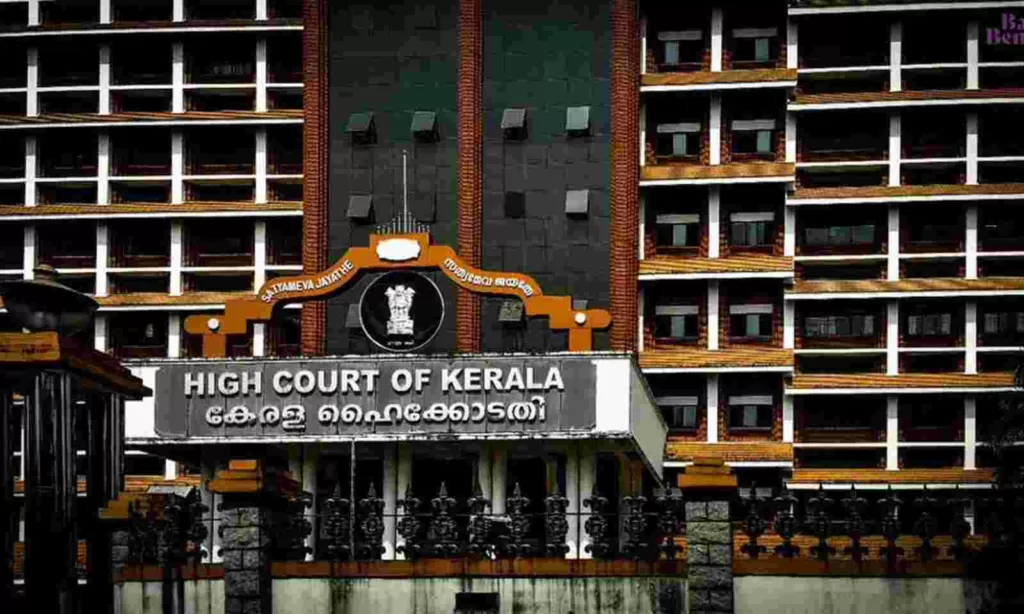The Kerala High Court observed that as in step with Order VIII Rule five of the Code of Civil Procedure (CPC), a judgment and decree in favour of the plaintiff isn’t automated at the failure of the defendant to place his defence. The Court found for this reason in a matrimonial attraction filed through a person below Section 19(1) of the Family Courts Act, 1984 in opposition to the judgment and decree of the Family Court.
A Division Bench of Justice Anil K. Narendran and Justice Viju Abraham stated, “A reading of the provisions under Order VIII Rule 5 of the Code of Civil Procedure would show that a judgment and decree in favour of the plaintiff is not automatic on the failure of the defendant to put his defence. The court can grant a decree in favour of the plaintiff only upon consideration of the case of the plaintiff, including appreciation of the pleadings and evidence on record. When the defendant has denied the averments made by the plaintiff in each and every paragraph of the plaint, even if there is no denial of any particular fact, it cannot be said that the defendant had admitted the same.”

Advocate A.K. Alex regarded for the appellants even as Advocate Jacob P. Alex regarded for the respondent. In this case, the appellants have been the respondents in a case earlier than the Family Court, Pathanamthitta, wherein an authentic petition changed into filed through the respondent herein-petitioner, the spouse of the first appellant, for realisation of 13.2 sovereigns of gold embellishes or its gift fee from the appellants and additionally for repayment. On receipt of notice, the appellants entered look and filed objection denying the allegations contained withinside the authentic petition and disputing the claims made therein.
After thinking about the pleadings and proof on file, the Family Court arrived at an end that the respondent is entitled to get a decree for restoration of 13.2 sovereigns of gold embellishes or its fee from the appellants and additionally Rs. 2,00,000/- from the husband as repayment. Accordingly, through the judgment and decree, the Family Court allowed in component the aforesaid authentic petition and directed the appellants to present 13.2 sovereigns of gold embellishes or its gift fee to the respondent-spouse inside 60 days from the date of that judgment. The husband changed into directed to pay a sum of Rs. 2,00,000/- to the spouse as repayment and it changed into ordered that the decretal quantity shall have a fee at the belongings connected and that the respondent might be entitled to get her price from the appellants.
Challenging the judgment and decree of the Family Court, the appellants have been, therefore, earlier than the High Court. The High Court within side the above regard noted, “The Family Court, after analysing the pleadings and evidence on record and taking note of the provisions under Order VIII Rule 5 of the Code of Civil Procedure, arrived at a conclusion that the respondent herein has succeeded in her claim for return of 13.2 sovereign of gold ornaments. The said reasoning of the Family Court cannot be said to be either perverse or patently illegal, in view of the provisions contained in Section 14 of the Family Courts Act and the law laid down in Shinu P.K. [2013 (3) KHC 735], Rajesh P.P. [2021 (4) KHC 242] and Kesari Hanuman Goud S. [(2013) 12 SCC 64].”
Suffered through her from her husband, a wife did now no longer adduce any supportive proof, and while requested throughout cross-examination, whether or not she lodged any grievance for the bodily attack from the aspect of the husband, she said that considering that he begged for pardon, she did now no longer make this type of grievance. “As already noticed, the respondents have now no longer selected to mount the box. After thinking about the oral testimony of PW1 and RW1, the Family Court located that the first respondent added PW1 from Hyderabad and she or he changed into despatched together along with his dad and mom to his house. When the dad and mom of the petitioner couldn’t set up greater gold embellishes, as demanded through the first respondent, she changed into despatched lower back to her domestic after taking lower back the thali chain”,
Additionally stated the Court. The Court brought that the spouse suffered a great deal intellectual and bodily cruelty entitling her to get repayment from her husband and hence, the locating of the Family Court can not be stated to be both perverse or patently illegal, warranting interference with inside the attraction. “Such a declare made withinside the authentic petition is maintainable earlier than the Family Court in view of the regulation laid down in Juveria Abdul Majid Patni [(201 ) 10 SCC 736] and Danial Latifi [(2001) 7 SCC 7 0]”, concluded the Court. Accordingly, the High Court dismissed the Appeal.
Also Read: VERIFY POLICE REPORTS FOR ASPIRING LAWYERS BEFORE GRANTING LICENSES
Read the entire judgement here: